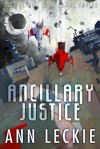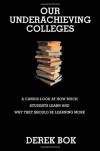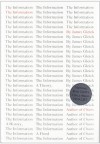Currently reading
McGlue
Knife Fight and Other Struggles
Far from the Tree: Parents, Children, and the Search for Identity
The Good Lord Bird
Ancillary Justice
Our Underachieving Colleges: A Candid Look at How Much Students Learn and Why They Should Be Learning More (New Edition)
Dissident Gardens
Nightmare Movies: Horror on Screen Since the 1960s
The Information: A History, a Theory, a Flood
Complete Novels
May We Be Forgiven: A Novel
 I'll admit to being an A. M. Homes fanboy. Were there some corollary to comic conventions in the "literary fiction" world, I'd probably show up at her panels, wearing one of my collection of Homes t-shirts (perhaps the one with that large stylized print of a Barbie--"I popped her whole head into my mouth"), carrying well-worn copies of the story collections or the masterpiece of suburban surrealist/nightmare comedy Music for Torching and standing in line for a little personalized scrawl, arguing in the halls with the other alleged fans about which work is most amazing or why she's so much better than Franzen.
I'll admit to being an A. M. Homes fanboy. Were there some corollary to comic conventions in the "literary fiction" world, I'd probably show up at her panels, wearing one of my collection of Homes t-shirts (perhaps the one with that large stylized print of a Barbie--"I popped her whole head into my mouth"), carrying well-worn copies of the story collections or the masterpiece of suburban surrealist/nightmare comedy Music for Torching and standing in line for a little personalized scrawl, arguing in the halls with the other alleged fans about which work is most amazing or why she's so much better than Franzen.Why? There is no current writer more generously fixated on the countless small and large ways we behave poorly. She writes with an incisive yet calm precision about--and openness to--the vagaries of desire, the inevitable kink in even the straightest of attractions as well as the comprehensibility of even those desires which seem most abnormally, hyperbolically beyond the pale. She does not judge the desire itself. Yet her openness is not simple acceptance; in every one of her stories she traces the consequences of acting on such desires, and the distress and disaster we bring down upon others, as a result.
Which can all seem exceedingly bleak, eh? Early novels follow vicious mothers, ruthless pedophiles, the casual arrogant egotism of the upper middle class; her stories and later novels seem to shift toward greener pastures and some more hopeful attention to the possibility of a happy end (and a meaningful relationship with others), yet nonetheless we encounter domestic abuse, privatized incarceration, unhappy marriages a-plenty, strokes and countless other traumatic medical events, the id-raddled fury and corollary naiveté in the drives of adolescent sexuality, Alzheimer's, corporate malfeasance, swingers around every turn in the supermarket, orphans and criminals and murderers--a cavalcade of losses and the always-lost. Yet her works are always marked by a humor that rides right along the edge of the nihilist's barking derision, and more recently--particularly in this latest, her perhaps most explicitly compassionate narrative--finding more the spirit of the great tragic comedians. There is loss, and heartbreak, and the sad sack floating along, buffeted by hard times and often by hard people. . . but the novels are about finding peace in what happens and communion with those around you.
In this novel, Harold Silver is in love with his brother George's wife Jane, but passively connects with her over Thanksgivings and holidays, before leaving her behind with his arrogant and aggressive brother, and heading home with his own distant wife. But after the first of the novel's many moments of accidental happenstance, he finds himself moving toward something more substantive... and then the next horrible thing happens, and Harry's torn from his old passive existence. What follows is the story of Job re-imagined as picaresque. Shit, as they say, happens; the chapter-less novel reads like a bewildering, sometimes brutal, sometimes lovely and funny and wondrous series of "and-then's" -- a soap opera, a serial, but told with a straight face in the calm, occasionally agitated but more often meekly accepting first-person voice of Harry.
Harry is a helluva creation. At first the novel, while consistently startling and engrossing and quite funny, seemed like an encyclopedic attempt to grind this passive figure down, to see what shit we could rain down upon him, and watch Harry--in the grand comic tradition of the unflappable protagonist beset by continuous catastrophes--settle in and try to do the right thing, regardless. But what seems mere complacent passivity emerges, over the course of events, as he adopts his niece and nephew and another orphaned child, as he struggles as casual sexual encounters become something more substantive and meaningful, as he seeks to do right by the brother who never seems to do anything but wrong, Harold emerges as a moral force, a life-force -- not beset and beleaguered but almost heroically carrying on, a Beckett hero in the suburbs of Cheever (in a Dickensian universe).
I found myself, after a short while, utterly enthralled. The long novel had a propulsive energy and wit, and I cared deeply about the characters (even those most destructive). I found a bleak but compassionate humor in the catalogue of misfortunes, and a growing joy as Harold found his way through each trial. The final fifty or so pages move toward a more complete redemptive energy, and my enthusiasm dampened just slightly--perhaps because I wanted the novel to carry on, and on, and on--although I do think the shift toward a charity mission in South Africa also marked a loss of detail and insight. (Throughout the novel, even the most ephemeral characters had recognizably rich, complicated lives... but the village where Harold goes with his kids seems a knowing but nonetheless still-limiting cartoon of such a community. Maybe I just felt--after so many moments where Homes came to a plot point and turned on a dime away from expectations--that these climactic events fit more neatly into recognizable conventions.)
I recommend this very highly. And while it might be easy to dismiss the fanboy, I'm confident that this novel will reach--and entertain, and impress, and move--a far broader circle of readers than those of us wearing Homes buttons and crowding her at the convention.
Thanks to NetGalley and Viking/Penguin Group for an advance readers' edition of the novel.












